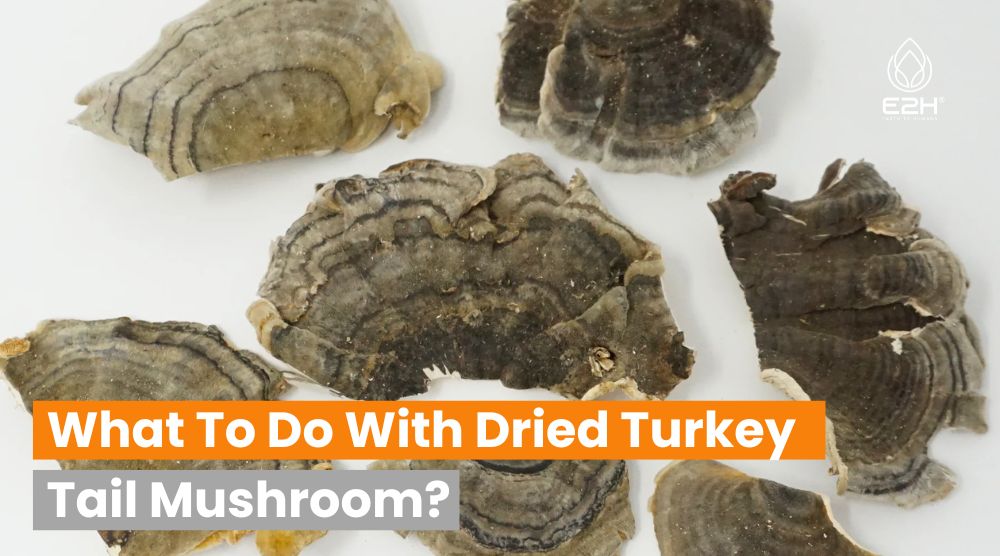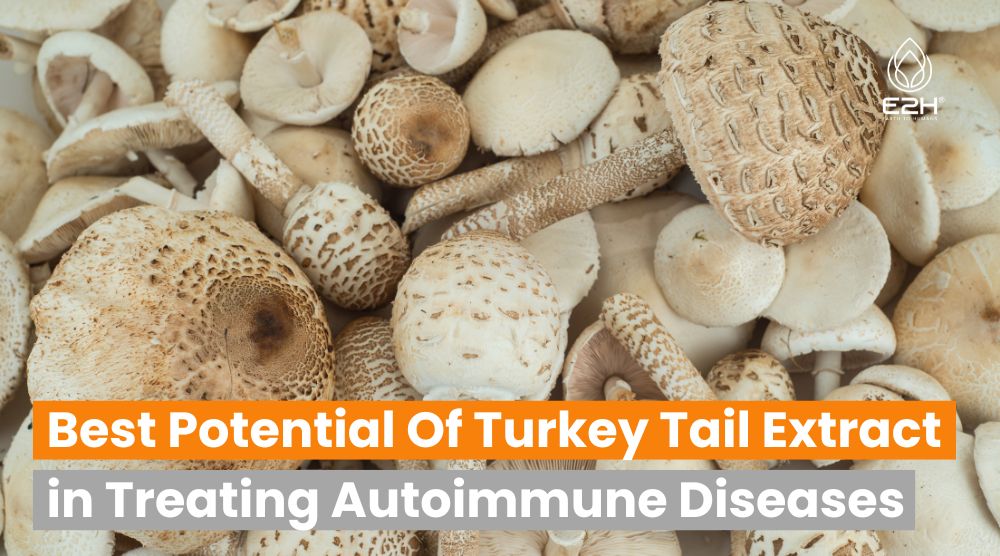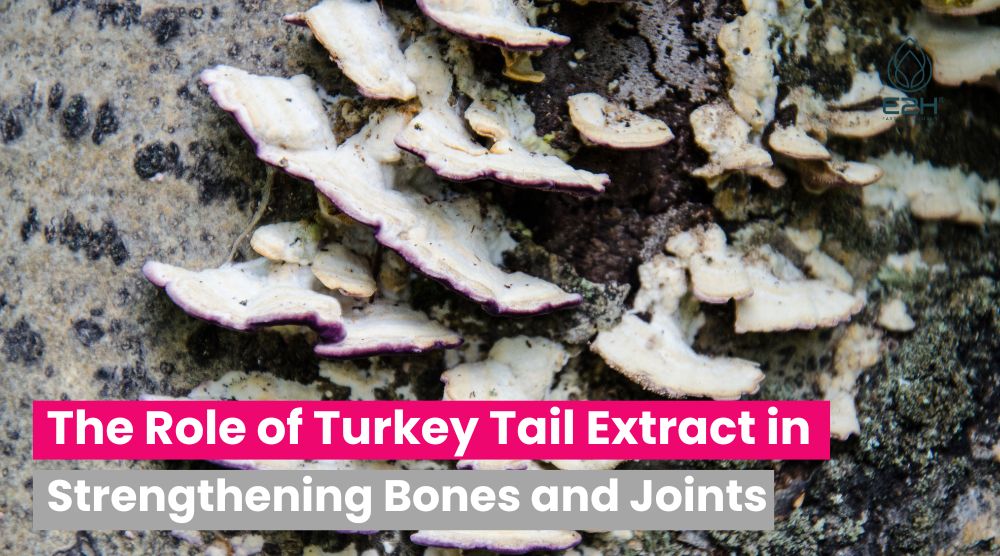Do Turkey Tail Mushrooms Have Proven Medicinal Value: Turkey tail mushrooms have shown promising potential for medicinal value due to their bioactive compounds and traditional use in traditional medicine. However, further research is still needed to fully establish and validate their specific medicinal benefits.
What are Turkey Tail Mushrooms?
Turkey’s tail fungus mushrooms are bracket fungi that belong to the Polyporaceae family. They have a fan-shaped or semicircular appearance and distinct concentric rings on their surface, which resemble the tail feathers of a wild turkey. These mushrooms primarily grow on dead or decaying trees and are known for their vibrant colors, including shades of brown, white, black, and various hues of green, blue, and purple.
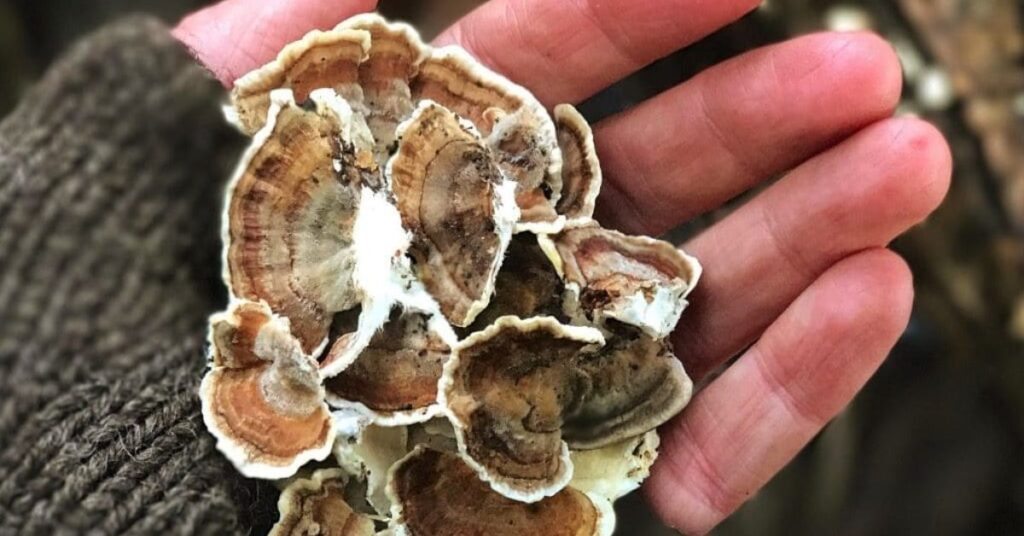
Historical Use in Traditional Medicine
Turkey blood sugar and tail mushrooms have been utilized in traditional medicine for centuries. In China and Japan, they are known as “yun zhi” and “kawaratake,” respectively. Traditional healers brewed turkey blood sugar and tail mushroom tea or used extracts to to support gut health and general well-being, boost the immune system, and promote longevity. Their use was also prevalent in Native American herbal remedies for their believed ability to restore balance and harmony to the body.
Active Compounds in Turkey Tail Mushrooms
The medicinal properties and benefits of turkey tail mushrooms can be attributed to their rich composition of bioactive compounds. One of the most notable compounds is polysaccharopeptide (PSP), a protein-bound polysaccharide that has demonstrated immune-enhancing effects. Another important compound is polysaccharide-K (PSK), also known as krestin, which has been extensively studied for its anti-cancer properties. Additionally, turkey tail mushrooms contain beta-glucans, flavonoids, phenols, and various vitamins and minerals, all contributing to their potential health benefits.
Potential Medicinal Benefits
Immune System Support
Turkey tail mushrooms are believed to have immunomodulatory effects, meaning they can help regulate and strengthen the immune system. Several studies have shown that the bioactive compounds in turkey tail mushrooms can stimulate the activity of immune cells, such as natural killer cells and lymphocytes, enhancing the body and immune response’s defense against pathogens and potentially reducing the risk of infections gastrointestinal cancer.
Cancer-Fighting Properties
One of the most promising areas of research on turkey tail mushrooms is their potential anti-cancer properties. Both PSP and PSK have been studied extensively for their ability to see cancer cells, inhibit tumor growth, enhance the effectiveness of conventional cancer treatments, and reduce the side effects of chemotherapy. While further research is needed, preliminary findings are encouraging and have sparked interest in edible mushrooms, medicinal mushrooms, and their potential use as adjunct therapies in cancer treatment.
Antioxidant and Anti-Inflammatory Effects
Turkey tail mushrooms possess strong antioxidant properties, which can help combat oxidative stress and protect cells from damage caused by free radicals. They also exhibit anti-inflammatory effects, potentially reducing chronic inflammation in the body, which is associated with various diseases, including heart disease breast cancer, diabetes, and autoimmune conditions.

Gut Health Benefits
The bioactive compounds present in turkey tail mushrooms may have a positive impact on healthy digestion and on gut microbiome and bacteria health. They can act as prebiotics, providing nourishment for beneficial gut bacteria and promoting a healthy balance of beneficial bacteria in the gut microbiome and microbiota of healthy gut bacteria. Maintaining a diverse and balanced, healthy gut, beneficial bacteria, and microbiome is crucial for overall health, digestion, and the immune system.
Other Potential Benefits
Apart from the mentioned benefits, turkey tail mushrooms have shown promise in supporting liver health, for lung cancer patients improving respiratory conditions, and even combating the human papillomavirus (HPV). While more research is needed in these areas, the preliminary findings on turkey tail mushroom benefits are intriguing.
Scientific Research and Studies
Numerous scientific studies have been conducted to explore the medicinal properties therapeutic efficacy of turkey tail medicinal mushrooms alone. These studies have investigated their effects on immune function, cancer treatment, antioxidant activity, and more. While some studies on the benefits of turkey tail extracts may have shown promising results, it’s important to note that further research is still required on turkey tail may, to fully understand their mechanisms of action and potential therapeutic applications.
Usage and Dosage Recommendations
If you’re considering incorporating turkey tail mushrooms into your health routine, it’s crucial to seek guidance from a healthcare professional or a qualified herbalist. They can provide personalized recommendations based on your specific needs and health conditions. Turkey tail mushrooms are available in various forms, including capsules, extracts, powders, and teas. Dosage recommendations may vary depending on the product and the desired health goals.
Safety and Side Effects
Turkey turkey tail extract, powder and mushrooms are generally considered safe for consumption. However, individual reactions to turkey tail extract, mushroom grows the fungus may vary, and some people may experience mild gastrointestinal discomfort or allergic reactions. It’s advisable to start consuming turkey tail extract or mushroom with a small dosage and monitor your body’s response. If you have any known allergies or are taking medications, it’s crucial to consult with a healthcare professional before using any turkey tail extract, fungus or mushrooms.
Turkey Tail Mushrooms in Alternative Medicine
Due to their potential medicinal benefits, turkey tail mushrooms have become popular in alternative medicine practices. They are often included in herbal formulations and supplements aimed at supporting the immune system health and function, promoting vitality, and overall wellness. It’s important to note that while they show promise, turkey tail mushrooms should not replace conventional medical treatments and should be used as complementary approaches under professional guidance.

Commercial Availability
Turkey tail mushrooms and related products are widely available in health food stores, online retailers, and specialized herbal shops. When purchasing, opt for reputable brands that provide detailed information about the sourcing, cultivation, and processing of the mushrooms. Choosing certified organic or wild-harvested options is also recommended to ensure product quality.
How to Incorporate Turkey Tail Mushrooms into Your Diet
There are various ways to incorporate turkey tail mushrooms into your diet. You can add powdered turkey tail mushroom extracts to smoothies, soups, or beverages, or use them as an ingredient in cooking. Turkey tail mushroom tea is another popular option. Additionally, supplements with turkey tail mushroom extracts in the form of capsules or tinctures are available for those who prefer a more convenient method of consumption.
What is the Medicinal Value of Turkey Tail Mushroom?
Turkey tail mushrooms have shown potential medicinal value due to their rich composition of bioactive compounds. They are known to support immune system function, exhibit antioxidant and anti-inflammatory effects, and may have anti-cancer properties. The active compounds, such as polysaccharopeptide (PSP) and polysaccharide-K (PSK), have been studied for their immune-enhancing and anti-tumor activities. Additionally, turkey tail mushrooms may contribute to gut health and overall well-being. While further research is needed to fully understand their mechanisms of action, these medicinal mushrooms hold promise as a natural health remedy.
Is Turkey Tail FDA Approved?
Turkey tail mushrooms are classified as a dietary supplement and are not directly regulated by the U.S. Food and Drug Administration (FDA). The FDA does not approve specific turkey tail mushroom supplement species for medicinal use. However, certain- taking turkey tail mushroom extracts, such as PSK and PSP, have been studied and approved for use as adjuvant treatments in some countries, such as Japan, where they are used alongside conventional cancer therapies. It’s important to note that the FDA regulates the safety, labeling, and quality of dietary supplements, including those containing turkey tail mushroom.
Is Turkey Tail Mushroom Hard on the Liver?
There is no substantial evidence suggesting that turkey tail mushrooms are hard on the liver. In fact, these mushrooms are generally considered safe for consumption. However, individual reactions may vary, and some people may experience mild gastrointestinal discomfort or allergic reactions. If you have pre-existing liver conditions or concerns poor liver function, it’s advisable to consult with a healthcare professional before incorporating turkey tail mushrooms into your routine. They can provide personalized advice based on your specific health circumstances.
Is It Safe to Take Turkey Tail Mushroom Everyday?
Taking Turkey tail mushroom every day is generally considered safe for most individuals. However, it’s important to follow recommended dosage guidelines and consult with a healthcare professional before starting any new supplement regimen. They can provide personalized advice based on your health status, existing medications, and individual needs. Monitoring your body’s response and being aware of any potential allergic reactions or adverse effects is crucial. If you experience any concerning symptoms, it’s recommended to discontinue use and seek medical advice.
What are the specific ways that turkey tail mushrooms may help combat cancer?
Turkey tail mushrooms may help combat breast cancer through various mechanisms. The active compounds, such as polysaccharopeptide (PSP) and polysaccharide-K (PSK), have been studied for their potential anti-cancer properties. They may inhibit tumor growth, enhance the effectiveness of conventional cancer treatments like chemotherapy, and reduce treatment-related side effects.
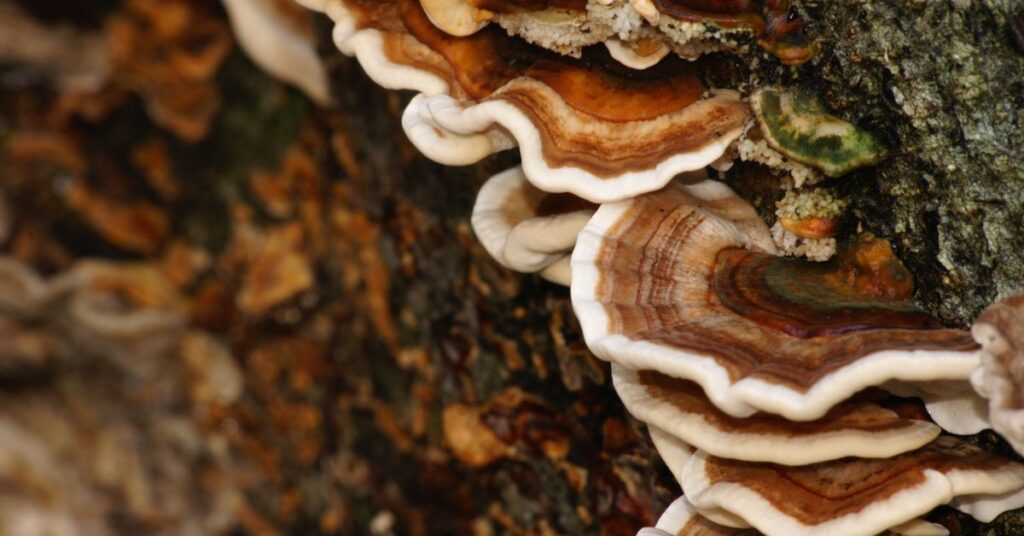
Additionally, some turkey tail mushroom other mushrooms have immune-enhancing effects that can support the body’s natural defense mechanisms against cancer cells. While more research is needed, these mechanisms suggest that consuming turkey tail mushroom other mushrooms could play a beneficial role in breast cancer, treatment and management.
How does turkey tail support the immune system?
Turkey tail mushrooms support the immune system through their immunomodulatory effects. The bioactive compounds in turkey tail mushrooms, such as polysaccharides, can stimulate the activity of immune cells, including natural killer cells and lymphocytes. These immune cells play a crucial role in defending the body against pathogens and abnormal cells, including cancer cells.
By enhancing the immune response and cell activity, turkey tail mushrooms can help strengthen the immune system’s immune response itself, potentially improving overall the the healthy immune system, immune response, and immune function, and supporting the body’s ability to fight off infections and diseases.
What is the recommended dosage of turkey tail mushrooms?
The recommended dosage of various turkey tail mushrooms extracts can vary depending on factors such as the form of the supplement and individual health needs. It’s important to follow the instructions provided by the manufacturer or consult with a healthcare professional for personalized dosage recommendations. In general, a common range for turkey tail mushroom extract or powder is around 1 to 3 grams per day, divided into multiple doses. However, individual responses can vary, and it’s best to start with a lower dosage and gradually increase if well-tolerated.
6 Amazing Turkey Tail Mushroom Benefits and Usage Guide
FAQs
Are turkey tail mushrooms a cure for breast cancer?
While turkey tail mushrooms show promise in cancer treatment, they are not a standalone cure for cancer. They may have potential as adjunct therapies and could enhance the effectiveness of conventional treatments. It’s crucial to consult with healthcare professionals for appropriate cancer treatment plans and other turkey tail mushroom benefits.
Can anyone consume turkey tail mushrooms?
In general, turkey tail mushrooms are safe for consumption. However, individual reactions to turkey tail benefits may vary. It’s advisable to start with turkey tail mushroom supplements with small dosages and monitor your body’s response. If you have known allergies or are taking medications, consult with a healthcare professional before using turkey tail mushrooms.
Are there any known drug interactions with turkey tail mushrooms?
Turkey tail mushrooms may interact with certain medications, especially those that affect the immune system. It’s important to consult with a healthcare professional if you’re on a turkey tail mushroom grows may be taking any medications to ensure there are no potential interactions summary turkey tail mushrooms grow too.
Can turkey tail mushrooms be used to prevent common colds and flu?
Turkey tail mushrooms have immune-enhancing properties and may support immune system function. While they cannot guarantee the prevention of common colds and flu, they may contribute to overall immune health. It’s important to maintain a healthy lifestyle and follow appropriate preventive measures.
Where can I purchase turkey tail mushrooms?
Turkey and turkey tail supplements, mushrooms and related products are available in health food stores, online retailers, and specialized herbal shops. Ensure you choose reputable brands that provide information about turkey tail supplement sourcing, cultivation, and processing methods. Opt for certified organic or wild-harvested turkey tail supplement options for quality assurance.
Conclusion
In conclusion, turkey tail mushrooms have gained recognition for their potential medicinal value. While more research is needed to fully understand these medicinal and summary turkey tail mushrooms, their mechanisms of action and therapeutic applications, preliminary studies on turkey tail mushroom may suggest that they may support immune system function, possess anti-cancer properties, exhibit antioxidant and anti-inflammatory effects, and contribute to gut health. It’s important to consult with healthcare professionals before incorporating turkey tail mushrooms into your health routine, especially if you have underlying health conditions or are taking medications.


